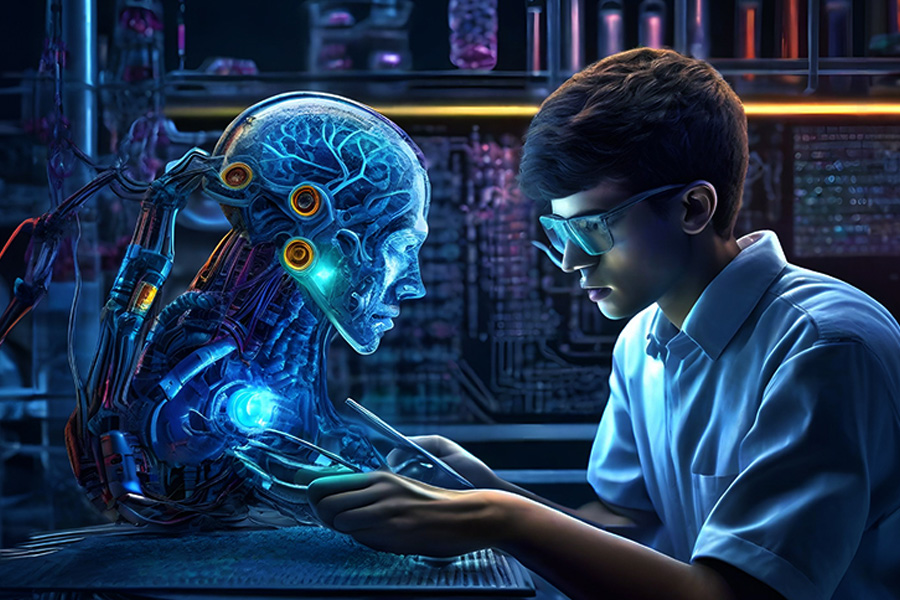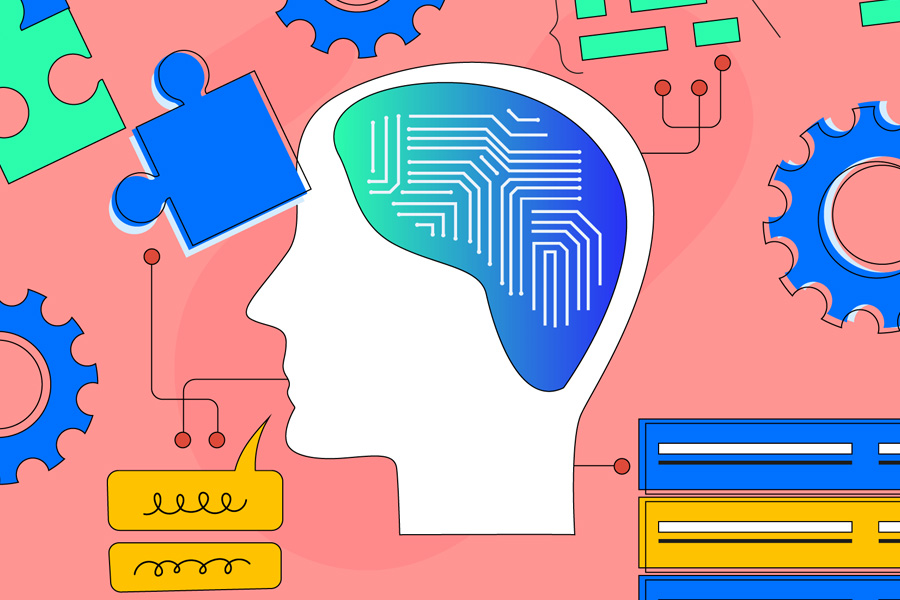Exploring the Ethical Implications of Generative AI in Modern Applications

Image Source: www.freepik.com
Introduction
Generative AI, such as ChatGPT and DALL·E, has revolutionised industries, enabling the creation of text, images, and music through algorithms. However, while it has opened new doors for innovation, it also presents complex ethical challenges. As the technology becomes more mainstream, understanding the ethical implications of its use becomes essential for responsible development and deployment. The laws governing ethical usage of technologies are quite rigid. Violations attract severe legal penalties that can affect businesses financially and also degrade their market reputation. For this reason, urban learning centres lay great stress on ethics and legal usage of technologies in their courses. Thus, a professional AI course in Bangalore will include extensive coverage on the ethical implications of technologies like generative AI in modern applications.
Bias and Discrimination
One of the primary concerns is the bias embedded in generative AI models. These systems are trained on vast datasets, often scraping the internet for information. Since online data reflects societal biases, generative AI can unintentionally reproduce harmful stereotypes. This has led to AI-generated outputs that reinforce gender, racial, and cultural prejudices.
For example, a generative text model might produce biassed hiring recommendations, or an image generator could create visuals that perpetuate stereotypes. Developers must take responsibility for ensuring fairness by training these models on diverse, unbiased datasets. Implementing mechanisms for bias detection and mitigation can also help. By incorporating the principles of ethics and responsibility into a generative ai course, educators can help prepare the next generation of professionals to contribute positively to society without any prejudices or bias.
Intellectual Property and Copyright
Generative AI can produce works that closely resemble existing copyrighted materials, raising questions around intellectual property (IP). When an AI model generates content by using elements from thousands of images, songs, or texts, it can infringe on the rights of original creators.
For instance, artists and musicians are concerned that AI-generated works could be too similar to their creations, which could result in copyright disputes. Additionally, the challenge of determining ownership over AI-generated content needs resolution. Who owns the rights to AI-generated works? The developer, the user, or the AI itself? This ambiguity in IP laws presents legal hurdles for businesses using generative AI.
Deepfakes and Misinformation
Generative AI has made it easier to create deep fakes—videos or images that convincingly mimic real people, often for malicious purposes. These deepfakes can be used to spread disinformation, manipulate elections, or even harm individuals through defamation.
The democratisation of such technology places it in the hands of those with malicious intent, making it a powerful tool for deception. Governments and organisations need to develop strict policies and regulations to combat deep fakes and misinformation campaigns while educating the public about the potential dangers of AI-generated content.
Privacy Concerns
Generative AI can be used to create synthetic data or avatars that resemble real people, which can raise serious privacy concerns. For instance, AI systems can generate fake identities or avatars that are indistinguishable from real individuals, making it difficult to protect against identity theft and fraud.
Moreover, personal data used to train AI models can also expose sensitive information. Even if data is anonymised, generative AI can sometimes reconstruct identifiable characteristics from seemingly impersonal data points. Privacy protection laws, such as the General Data Protection Regulation (GDPR), will need to adapt to the rise of generative AI technologies.
Job Displacement and Economic Inequality
As generative AI systems improve, AI model developers who have the learning from a generative AI course can automate more complex tasks, including writing, designing, and creating content. While this could lead to increased efficiency and lower costs for companies, it also poses a threat to jobs in creative industries.
Writers, graphic designers, and musicians, among others, could see their roles reduced or eliminated as companies turn to AI-driven solutions. The ethical dilemma here revolves around balancing innovation with protecting livelihoods. Businesses and governments must work together to upskill workers and create new opportunities for displaced professionals.
Accountability and Transparency
When generative AI systems malfunction or produce harmful content, determining accountability can be difficult. These models operate in a black-box manner, meaning the logic behind their decision-making processes is often opaque. If a generative AI creates misleading or offensive material, who is responsible? The developer, the company deploying the AI, or the end-user?
Additionally, transparency is crucial for building trust. Users need to understand how generative AI models work and what data they are trained on. Clear disclosures about the use of AI in content creation and decision-making are necessary to ensure that individuals and organisations can make informed choices about its use. An AI course in Bangalore would, for instance, include topics on the legal requirements that AI model developers need to be aware of, as most of those who complete such a course would apply their learning in real-world scenarios.
Autonomy and Human Oversight
As generative AI systems become more autonomous, there is growing concern about the loss of human control. For example, in highly automated industries, decisions may increasingly be made by AI without human intervention. This raises questions about the role of humans in decision-making and the potential for AI systems to operate without ethical guidance.
To address these concerns, there should always be human oversight in the deployment of generative AI systems. Human operators must be able to intervene when necessary to prevent harmful or unethical outcomes.
Conclusion
The rise of generative AI presents both tremendous opportunities and significant ethical challenges. Ensuring that these technologies are developed and used responsibly requires a multi-stakeholder approach, involving developers, regulators, and the public. Addressing issues such as bias, privacy, accountability, and transparency is crucial to building a future where AI benefits society while minimising harm. Through proactive ethical considerations, generative AI can be harnessed for good, driving innovation without compromising human values. There are some golden rules that any inclusive generative AI course will recommend for professionals, who must observe them as a matter of policy to ensure that they do not transgress the limits that ethical usage of AI technologies must honour.
For More details visit us:
Name: ExcelR – Data Science, Generative AI, Artificial Intelligence Course in Bangalore
Address: Unit No. T-2 4th Floor, Raja Ikon Sy, No.89/1 Munnekolala, Village, Marathahalli – Sarjapur Outer Ring Rd, above Yes Bank, Marathahalli, Bengaluru, Karnataka 560037
Phone: 087929 28623
Email: enquiry@excelr.com









